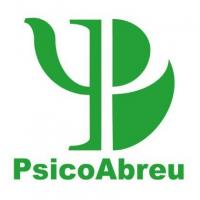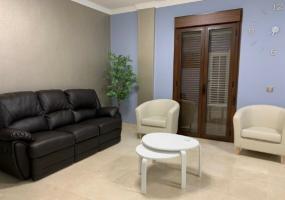The 8 types of Psychotic Disorders
The psychotic disorders They are psychopathologies serious in which the person loses contact with reality. The most characteristic symptoms are hallucinations and the delusions.
Delusions are defined as false beliefs. That is, wrong beliefs of reality about an existing fact or object. They are a distortion of an external stimulus. For example, a delusional patient may think that someone is following him because there is a conspiracy against him.
Instead, hallucinations They are false perceptions, such as hearing, seeing, or feeling something that doesn't really exist. These perceptions are invented by the mind and are not the product of the distortion of any present object, since something is perceived without taking into account external stimuli. For example, a patient with schizophrenia may believe that they speak to him through the shower drain.
Delusions are characteristic of delusional disorder, whereas hallucinations predominate in schizophrenic disorder. Both psychopathologies are the best known psychotic disorders, but there are also less popular ones.
Types of Psychotic Disorders
According to the fourth edition of the Diagnostic and Statistical Manual of Mental Disorders (DSM IV) there are the following psychotic disorders:
Schizophrenia
The schizophrenia is a disorder in which the person suffering from it has hallucinations and disturbing thoughts that isolate him from social activity. Schizophrenia is a very serious pathology and its treatment requires the use of drugs so that the patient does not suffer outbreaks. Despite there being no cure, there are effective treatments so that patients with this disorder can enjoy their lives.
The symptoms of schizophrenia are divided into positive and negative. The former are manifestations that the patient makes or experiences, and that healthy people do not usually present. Negative symptoms are those things that the patient stops doing and that healthy people can do on a daily basis, such as thinking fluently and logically.
Positive symptoms
- Hallucinations
- Delusions
- Disorganized thoughts
- Disorganized behaviors or Catatonia
Negative symptoms
- Lack of interest or initiative
- Apathy
- Social withdrawal or depression
- Lack of emotional response
Types of Schizophrenia
There are different types of schizophrenia:
- Paranoid schizophrenia: It is the most common. Predominance of delusional ideas.
- Hebephrenic schizophrenia: Predominance of emotional disturbances. For example, the patient laughs for no reason.
- Catatonic schizophrenia: Characterized by motor alterations. With persistent immobility, although it may alternate with agitation attacks.
- Undifferentiated schizophrenia: When a schizophrenia does not meet the criteria of those of the previous types or presents several symptoms at the same time of the types mentioned above.
Delusional disorder
Delusional disorder, also known as paranoia, is characterized because the patient has one or more delusions and is convinced that they are true. For example, when walking through a shopping center, he thinks that some people (he does not even know) are watching him to send information to someone who wants to kill him. There are several types of delusional disorders depending on the nature of the delusion (for example, persecutory delusional disorder).
Regarding treatment, patients tend to resist and, on many occasions, tend to hide the delirium, which is known as “encapsulated delirium”. Treatment includes psychotherapy and the use of antipsychotics.
Brief Psychotic Disorder
As its name suggests, it is a psychopathology in which a psychotic outbreak may appear with the same symptoms as a schizophrenic disorder, but lasting a few days and it never affects the patient again. Therefore, it disappears without leaving sequelae. It is usually a response to a traumatic event such as the death of a family member or a time of extreme stress.
Schizophreniform Disorder
Schizophreniform Disorder is similar to Brief Psychotic Disorder, but lasts from 1 month to 6 months. The patients show different symptoms of schizophrenia: delusions, hallucinations, disorganized speech, catatonia, and / or negative symptoms.
Schizoaffective Disorder
In this type of psychotic disorder called schizoaffective disorder, the patient experiences symptoms of schizophrenia along with symptoms of a mood disorder, either at the same time or alternately.
Shared Psychotic Disorder or "folie à deux"
Shared psychotic disorder is a strange and unusual pathology, since there are two people who share the same delusions and hallucinations. The exact cause of this psychotic disorder is unknown; however, stress and social isolation may play an important role in its development.
Substance-Induced Psychotic Disorder
This type of psychotic disorder it is characterized by being caused by intoxication due to the use of drugs or drugs. Symptoms usually appear quickly and last for a short time, from a few hours to several days, but then the effects of the drugs disappear.
The most common symptoms are visual hallucinations, disorientation, and memory problems. Some substances that cause this disorder can be: marijuana, alcohol, cocaine, amphetamines, hallucinogenic inhalants, MDMA, opiates, sedatives, hypnotics and anxiolytics.
Psychotic Disorder Due to a Medical Condition
Psychotic disorder due to medical illness occurs when the symptoms of the disorder are the result of diseases that affect the function of the brain. brain (for example, a brain tumor).



